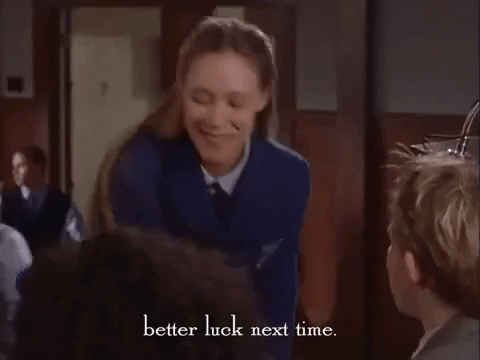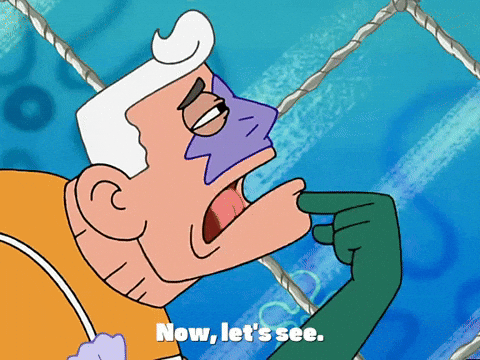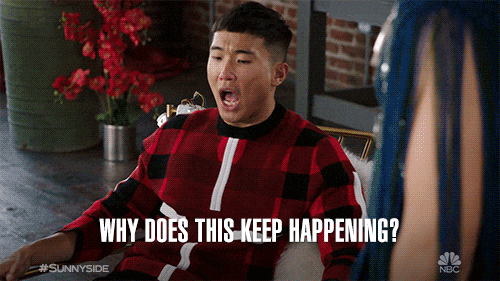- Rise & Thrive
- Posts
- Against All Odds: Winning the Game of Life
Against All Odds: Winning the Game of Life
Winning at poker & at life requires similar skills. Today you'll get 4 PRACTICAL lessons from poker that you can apply to your life right now.

Lesson 1: Abundance Vs Zero-Sum Games
Poker is what we call a zero-sum game.
This means that for one player to win chips, someone else has to lose chips.
The key element to life is about understanding the balance between zero-sum games and total abundance. You need both to properly navigate life and achieve your dreams and goals.
Zero-Sum Games
Here’s how zero-sum games work in real life:
If you get the job you applied for, others got rejected.
When your crush starts dating someone else, you lost out.
When you cheer for your sports team’s goal, opposing fans are groaning.
The money some investors make is lost by others.
Amazon got big and destroyed many other (online) stores along the way
Here’s the key takeaway:
Life is oftentimes competitive!
In video games, we call it PvP, Player versus Player.
Many people lose out in life because they lack the winner’s mindset. Just doing okay often isn’t enough because you’re up against someone who goes above and beyond. If you’re not competitive, you’re guaranteed to lose!

I’m sure you “tried your best” old sport!
This will be even more important the coming years. Of you’re average, you’ll be easily replaced by AI and the badass motherfuckers using it.
Rise above, or fall behind.
Abundance
But… there’s an ugly side to this too.
The competitive nature of life can be a great inspiration for some, while creating bitterness and resentment in others. Many people are quietly giving up on their dreams, aspirations and even life itself….
They lost once or twice (or 17 times) too many…
If you’ve ever experienced great defeat, you’ll know the feeling. The self doubt. Feeling unmotivated. Wondering if you’ll ever succeed. And the 41.8 gazillion other negative thoughts running through you.
The antidote is thinking in Abundance:
If you didn’t get hired, there are thousands of other jobs.
Spoiler alert: Your crush isn’t the only attractive person.
If you lost money investing, learn the lesson and do better next time.
Even small stores can survive against Amazon with the right strategy.
In order to keep your chin up, realize that opportunities are everywhere!
Thrive in Life
In poker, you can recoup your losses in a future hand.
In life, there are new opportunities every day!
This calls for what I call aggressive patience:
Go about achieving your goals with extreme tenacity every day. After all, life is competitive. But… realize you’ll often fail along the way. Opportunity is abundant, but you’ve got to take action aggressively for long enough to reap the rewards!
What you can do this week is limited…
What you can do in the next 10 years is almost limitless!
Competitiveness + Abundance = Winning at Life
Lesson 2: Taking Risk Like a Champ
I mentioned above that there is always a next hand in poker.
But… there’s an exception:
When you decide to go all-in (bet all your chips) and lose, it’s often game over! Most of the time, you cannot get back into the game after losing all your chips.

One of the most important skills for a poker player is taking calculated risks.
Here’s how it applied to real life:
Once upon a time, there was an idiot.
(It was me)
18-year-old me didn’t have the wisdom I’ll share with you in a moment. Working in a job he hated, he listened to a motivational podcast. At the time, he had an online business on the side (that wasn’t making a single penny yet).
This idiot got excited from the podcast.
He decided to go “all-in” on his business.
After telling his boss that he quit, he would go and focus all his time and energy on the business. Long story short… it was a complete disaster. It left me financially ruined, which took a few years to clean up.
Here’s what I have learned since then:
How to Take Calculated Risks
There are a few rules I now follow when making important choices.

Do I really want fries with this….?
Rule 1: Never Make Important Decisions When Highly Emotional
This goes for both positive and negative emotions. They cloud our judgment. Take the time to step back and reflect. Postpone the decision until you’ve had time to think about it in a level-headed manner.
Rule 2: Important Decision Should Be Made on Paper
Imagine that you’re looking at a map of a city you’ve never been to. When looking at this map, you can identify where you are and where you want to go. Then, you can easily take the best route to get there.
But what if you got sucked into the map?
If you were just a single dot of ink, you’d have no clue how to find your way to your destination. You can’t see the big picture because you’re in it too deep. The same thing happens with your thoughts, feelings and emotions when they get mixed up.
Writing things down creates clarity.
Rule 3: Consider the Worst-Case & Reversibility
In my example, the worst-case of quitting my job was quite bit and also irreversible once I had told my boss that I was done with it.
At the time, I only thought about the upside.
In my mind, I was already rolling in money. After all, with all this extra time and effort I could use, surely it would work. Right? Right…? Turns out, I was completely wrong! All because I never considered the worst-case scenario.
Then there’s reversibility.
Another option that I had was to continue working and build the business on the side. Even if I put all my free time into it, I wouldn’t lose much if it didn’t work out. Technically I could quit and nothing bad would happen.
Lesson 3: The True Nature of Poker & Life
People mistakenly think that poker is a game of luck.
When I’m playing a game of basketball against a pro, it’s easy to see I’m no match. I wouldn’t keep player when I’m heavily outclassed. I would find another opponent, another game or a handicap that levels the playing field.
Basketball is obviously a game of skill.
Poker is as well, but it’s less obvious.
If an amateur plays 1000 hands against a professional, the professional will almost always come out on top. But because luck is a factor, the skill gap isn’t as apparent. Therefore, the novice could easily blame it on bad luck and continue playing. Never realizing that his skill level is too low…
People do the same in real life…
People often believe you need to get lucky to be successful. They often blame circumstances for their misfortune. They blame it on the economy, prejudice against them, not getting enough hugs as a kid, their lazy fairy godmother, and other things for their lack of success.
Here’s the truth about luck:
The more you work, the luckier you get.
The more you hone your skills, the luckier you get.
The longer you persist, the luckier you get.
The more you believe in yourself, the luckier you get.
The more you learn from mistakes, the luckier you get.
Then, one day…
People will look at your success and say:
“Man, that dude is lucky! Wish that were me…”
Key Takeaway
If you see other people that are doing a lot better than you in some area, one of the following is true:
They have skills you don’t yet have
They have knowledge you don’t yet have
They’re doing something (beneficial) you aren’t yet
They’re NOT doing something (bad) that you aren’t yet
They’re doing more than you are doing
They have been consistent for longer than you have
Never blame “bad luck”!

Instead, create your own by learning new skills. Figure out what they’re doing and emulate them. Do more than them. Train yourself to be disciplined. Be more consistent. And then, outlast them!
You might be dealt a bad hand in life.
But unlike poker, IMPROVING your hand is 100% in your control!
Lesson 4: Adaptability
Let me ask you something.
The world is changing rapidly. The economic situation isn’t getting better anytime soon. AI is going to change the entire workforce. Freedom of speech (and in general) is under attack. Ridiculous “woke” ideas are becoming more rampant.
What’s your plan to adapt to all of these changes?
For example, how would you go about making sure that AI isn’t going to make you obsolete in a few years?
Poker players need to be agile.
Depending on the cards they’re dealt, their opponents, the flop, their stack size and many other factors, they need to change the way they play. Doing so requires two main things: observational skills and flexibility.
Observation is Key
As people, we tend to dismiss things that we don’t understand. This has to do with the Confirmation Bias. We are inclined to believe anything that confirms what we already believe. Likewise, we’re inclined to dismiss everything that contradicts what we believe to be true.
This is extremely dangerous!
You see this often on social media. People stay inside of their own echo chambers. They form groups with people that believe the same things they do. They turn a blind eye to any ideas outside of their circle. Or they band together and attack the other side.
This behavior makes one narrow-minded!
Instead, turn to curiosity as your superpower!
Here’s what I would challenge you to do:
Whenever you hear something you disagree with, look up arguments and reasoning for the contrary belief. You don’t have to change yours. But at the very least, try to understand other points of view.
If you come across a term you don’t understand, Google it rather than just move on.
And finally, try discussing more intellectual things (might have to find new groups to do this with). Celebrity gossip isn’t gonna do anyone any good. Nor does knowing all of the statistics of each football player in the league.
Philosophy, economics, geopolitics, health & fitness, news in tech, psychology, current events and anything related to your (desired) career.
By focusing on those topics, you broaden your horizon.
The more you understand about the world, the better equipped you’ll be to deal with any changes that might be happening. Without awareness of how things work, you don’t stand a chance!
Flexibility
Observation is half the battle, how you act upon information is the other.
What works today might not work well tomorrow. By all means, keep doing what is working for you now. However, dedicate some part of your time to test new strategies to reach your goals and get better results.
For example by learning about different AI tools and how they make your work both easier AND better.
The second thing I can tell you is to network.
In the next few years, the work you do will become less valuable. Because of AI, more people will be able to do the same job. Or it might not need a human at all. When that happens, human connection will be more important than ever.
It’s one of the reasons why I’m building my personal brand.
And finally, critical self reflection is crucial!
At the end of the day, you want to ask yourself questions like:
What did I do today that I’m proud of?
What could I have done better?
What did I fail at today? (and be disappointed at the answer ”nothing”)
What’s the biggest lesson I learned?
If I could change one thing in my actions, what would I do better tomorrow?
Contrary to popular belief, practice does NOT make “perfect”. In fact, practice alone does NOT help you get better. If you try 100 times but fail in the same way all 100, did you learn anything?
Absolutely not!
Just like a good poker player, you need to be critical of your actions and adapt where needed.

The Truth About Dopamine & Detoxing
Forget everything you dopamine and dopamine detoxing! Most of the information out there on the good ol’ interwebz is frankly incorrect!
If you’ve ever considered doing one, listen to this FIRST:

Ask Better Questions —> Get Better Answers
The video below is one of my older ones, but it’s quite powerful!
To achieve different results than you are now, you’ve got to think differently from the way you are now! Watch it now to learn about 6 (and a half) questions you can ask yourself to completely change your perspective!

Making a Key Decision in Your Life
Today, I’d like to challenge you to think about your life critically. I’m sure there are many things you’ve once considered for your future. Perhaps changing careers, moving to another town, a personal goal, or investment. Maybe there’s a problem that you’re dealing with, but are unsure how to solve.
Think about a problem or decision you’re facing or contemplating.
Let’s go and analyze the board with the precision of a poker player.
1 Start With a Braindump
When it comes to decision making, the worst place for your thoughts to be is within your head. Get everything out on paper! Start by writing down the problem or the nature of the decision to be made.
Write down in detail what the problem is as well as possible solutions.
2 Keep a Level Head
The reason to write things out in detail is to approach this rationally. If you ever find yourself feeling strongly emotional (good, bad or otherwise), pause this exercise. Go for a walk, talk a shower, come back tomorrow, etc. Let it rest for now and come back when you’re feeling calmer.
3 Map Everything Out
Now that you’ve written down the problem statement as well as possible solutions, it’s time to work them out in detail. For each possible solution, write down all the pros as well as cons.
Try to be as objective as possible.
4 Think About the Worst-Case Scenarios and Reversibility
Some decisions have huge consequences as well as commitment. Others are less impactful and more easily undone should things go poorly. Taking this into account should be part of your decision making process.
What’s the worst that could happen with each decision? What can you do to mitigate risk if you choose it? What are your options when it doesn’t work out? How reversible is the choice?
5 Impact/Effort Matrix
I’d say this is an optional step, but it can be useful in prioritizing options. For this create a 2×2 matrix. One of the axes is impact (how will it benefit you) and the other one is effort (how much is required to pull it off).
This gives you 4 quadrants:
High impact, low effort
High impact, high effort
Low impact, low effort
Low impact, high effort
Take the options you’ve come up with and try to work out in which of these categories they fall. Category 1 would be the best under this framework and category 4 would be the worst.
6 Putting Everything Together
Once you’ve written everything down, let it rest for a day or two.
Then, get back to it and analyze your own analysis with fresh eyes. On the sheet of paper, you’ll have analyzed the problem from multiple angles. This will now give you a thorough understanding of your options, so that you can make an informed decision.
7 Take Action
Hopefully this is a no-brainer, but once you’ve made your choice, take action relentlessly!

 | And on the note of this joyful fella, I’m all-out. And if she ever comes close to me again… I’m going to pa-pa-pa poke-her-face. Aight, I’m fresh out of puns. Maikel |
